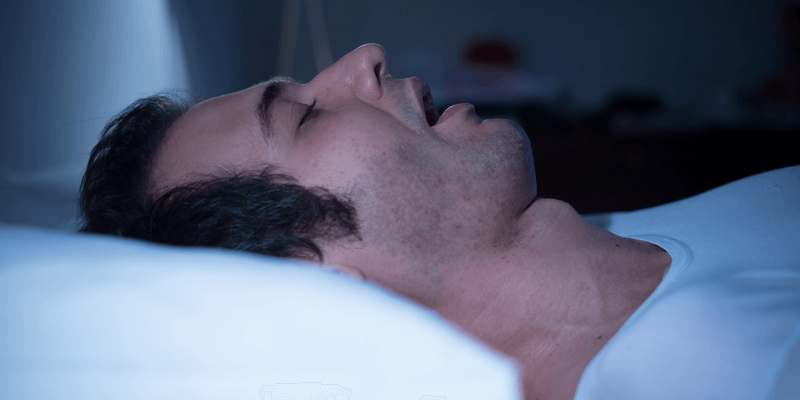
Is This the Most Overlooked Benefit of Remote Work?
In The Sleep Revolution: Transforming Your Life, One Night at a Time, Arianna Huffington writes that it is “our collective delusion that overwork and burnout are the price we must pay in order to succeed.”
Ask almost any working adult and the answer will be the same: they’re overworked, they’re too busy, they feel rushed, they’re tired. According to recent research, they’re actually exhausted—so much so that the Center for Disease Control and Prevention referred to insufficient sleep as a public health problem.
That’s right: roughly 50 to 70 million adults in the US alone are suffering from sleep or wakefulness disorders. If you count yourself among the under seven hours a night crowd—and are perhaps fighting the urge to yawn right this moment—read on. Better sleep might just be the most overlooked benefit of remote work.
Is Sleep the Most Overlooked Benefit of Remote Work?
The Dangers of Sleep Deprivation
Lack of sleep causes otherwise very capable professionals to make poor decisions, be they work-related or involving nutrition. (Who hasn’t grabbed a bag of chips or sugary snack to get through the afternoon lull, when in truth, a nap would be so much better?) You’re more likely to skip exercise when feeling tired, or have a shorter fuse with colleagues. As a result, your performance, wellness, and relationships suffer. Lack of sleep also leads to higher stress levels, and over time, a greater likelihood of chronic disease.
Nodding off in the middle of a project is surely problematic, but what if you find that you’re microsleeping at the wheel?
Cutting corners on getting enough sleep isn’t just irresponsible; it’s an unsafe behavior that can cause irreparable damage to your professional reputation and your health.
Exhaustion Affects Businesses’ Bottom Line
It likely doesn’t come as a shock that workers who are tired are also less productive. After all, those of us who have slogged through a difficult workday when we should have opted to stay home are acutely aware of just how little we actually accomplished. We know all too well that it wreaks havoc on our patience and vital cognitive functions such as our memory and capacity to learn.
The tradeoffs of poor sleep are even more devastating when viewed in aggregate form.
A study published in the Journal of Occupational and Environmental Medicine showed some jaw-dropping figures representing financial ramifications of insufficient sleep. Across the four companies that were studied, researchers discovered that sleep-related reductions in productivity cost an average of $54 million per year.
A Meritocracy, Not a Marathon
For remote workers, there are no kudos to be had by arriving early or staying late to a home or virtual office; indeed, those behaviors may actually have a negative connotation, as the emphasis in remote scenarios is on productivity and output rather than hours spent on tasks.
The focus is on quality over quantity. Turning in shoddy work will only hurt a remote employee’s credibility, so ensuring that a job is well done doesn’t mean you’re chained to your (coworking or home office) desk.
However, managing yourself effectively requires attention to your state of mind and taking a proactive approach to balancing your work and life. Bonus: the lack of a commute also offers you the golden opportunity to sleep later. That one extra hour can mean the difference between better health and greater productivity. (Try not to rub it in when speaking with friends or family who must rise earlier to fight gridlock in a much more arduous morning routine.)
Rest Up and Live Well
The 24/7 nature of business today can make it a challenge even for remote workers to shut off their devices and relax, yet creating clear boundaries for work and relaxation is critical to one’s health and career. So how can we get a better night’s sleep? Check out the following tips, which have been culled from a variety of sources, including the CDC, Entrepreneur, and Harvard Business Review.
- Keep a regular sleep schedule. Your body’s Circadian rhythm will thank you and your quality of sleep will benefit if you hop into bed and get up at consistent times.
- Forgo large meals before bedtime. Digestion affects your ability to progress through the early stages of sleep to achieve REM, or rapid-eye movement, the deepest level of sleep.
- Avoid caffeine and alcohol at night. Both stimulants and depressants have been known to block sleep-inducing chemicals in the brain.
- Avoid nicotine. Many health-related reasons exist to quit using nicotine products altogether; their negative effects on your ability to sleep are just another.
- Don’t take sedatives. Sleeping pills and other sleep-inducing medications alter the brain’s natural processes, which can have dire consequences with repeated use.
- Lighting matters. Sleeping in the glow of a laptop or TV isn’t ideal; complete darkness is more conducive to a full night’s rest. If you find you’re having trouble falling asleep, avoid blue light at night. (If you must check your smart phone, put it on a night setting with yellow light.)
By Kristi DePaul | Categories: Work Remotely



